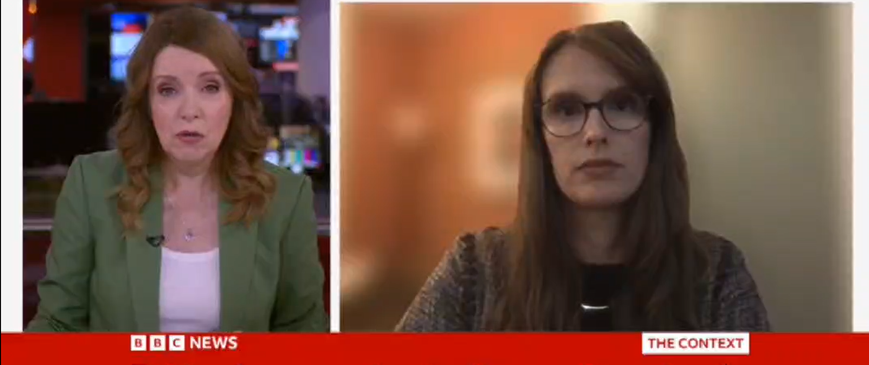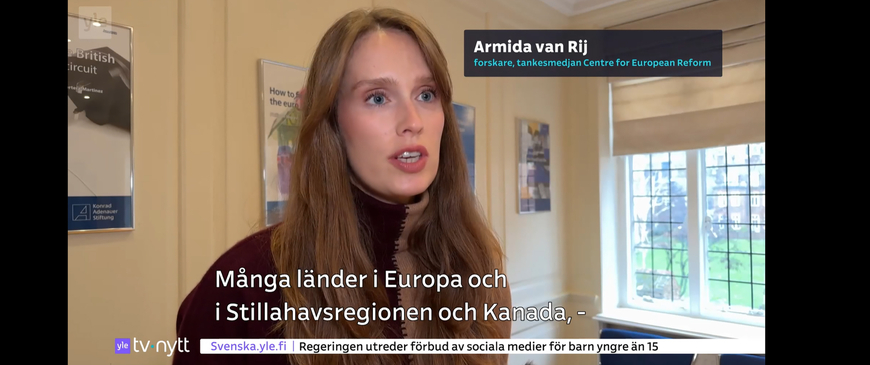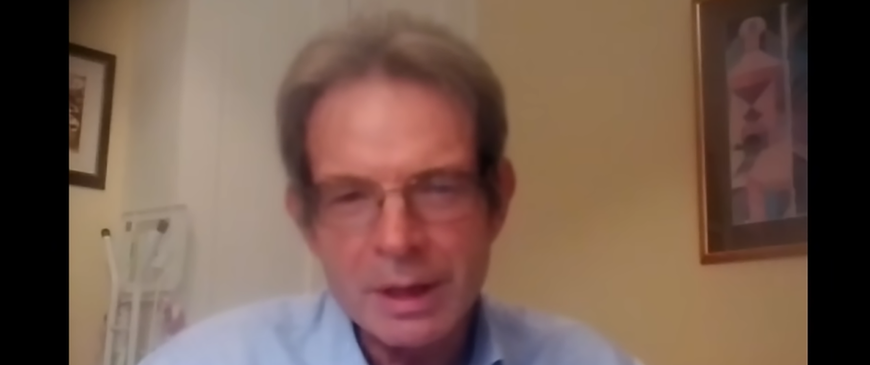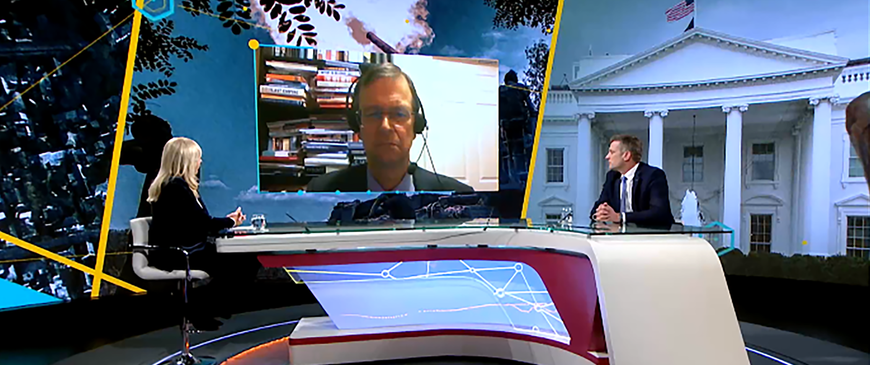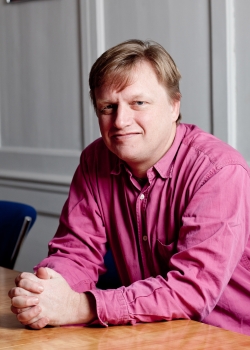Press
Between rock and hard place in Brussels
27 June 2013
The Wall Street Journal
Charles Grant, of the CER, says the commission draws extra fire because of its contradictory roles. It is at once the political body that initiates legislation and brokers compromises among EU members—but also the technical body that polices markets and rules.
What a prospect - pro-European think tank hits top spot
27 June 2013
Evening Standard
Hats off to the Centre for European Reform, which won Prospect magazine’s Think-Tank of the Year for International Affairs. Bill Emmott, former editor of The Economist, admitted that the judges ummed and aahed over giving a pro-European think-tank an award but felt CER deserved the honour.
Is Italy headed for a Greece-style bailout?
26 June 2013
Marketplace
Italy might need a Greece-style bailout within six months. That’s the warning from Italy's second largest bank, MedioBanca, according to a report in Britain's Daily Telegraph. Simon Tilford, from the CER, joins Marketplace Morning Report host David Brancaccio to discuss.
Britian's migration delusion
26 June 2013
Prospect
Right from the start, EU immigration was the glaringly obvious hole in David Cameron’s pledge to “reduce net immigration into the UK from the hundreds to the tens of thousands”.
UK has cut too deeply, but don't misread Greece's hardship
26 June 2013
Financial Times
From Mr Simon Tilford.Sir, The UK Treasury may well be guilty of many of the failings Philip Stephens attributes to it (“The best spending cut of all? Shut down the Treasury”, June 24).
EU summit in Brussels wrestles with youth unemployment
26 June 2013
BBC
John Springford, of the CER, said the EU was facing "very large political roadblocks" hampering the necessary macro-economic changes. "They are stumbling towards integration very slowly - when the financial markets relax the pressure, the progress stalls," he told BBC News.
EU's eroding support imperils crisis response
25 June 2013
The Wall Street Journal
"The biggest problem the EU faces is a crisis of legitimacy," says Charles Grant, director of the CER. "The euro arguably needs more centralised economic policy-making, but the popular support for that is not there."
The comeback of old king coal
24 June 2013
Financial Times
But as an excellent, if depressing, forthcoming paper from Stephen Tindale to be published by the Centre for European Reform makes clear not a single one of the CCS plants which are supposed to be built in European by 2015 is actually under construction.
EU betrays cultural blind spot in handling Turkey
21 June 2013
Financial Times
Heather Grabbe, formerly a senior EU official dealing with enlargement, in a Centre for European Reform paper this week urges the EU to "hug Turkey closer at this great moment in Turkey’s democratic journey".
Commentary on Irene Finel-Honigman's article: And the key question is whether a stronger eurozone will split the EU apart
20 June 2013
Europe's world
The friction between what Irene Finel-Honigman calls "economic rationale" and "political will" has been the driving force behind European integration. But now the eurozone crisis has transformed the nature of this interaction; its underlying spirit is no longer positive and optimistic – "how can we bring Europe closer together?"...
Germany's ascendancy over Europe will prove short-lived
19 June 2013
The Daily Telegraph
Simon Tilford, from the CER, says Germany was never as weak as it looked earlier this decade, and is not as strong as it looks now. But success goes to the head in politics. The national mood has swung from “self-flagellation” to “hubris”, with some questioning the need for Europe at all.
Wave of protests engulfs Greece
18 June 2013
The New York Times
Simon Tilford, of the CER. said, "The idea that Greece is somehow out of the woods seems complacent,” adding, “It reflects a readiness to ignore the large-scale political challenges facing Greece."
Cash strapped Europe pools defence, saves little so far
17 June 2013
Reuters
"Countries remain scared to pool capabilities because they don't want to lose control and they don't like the idea of having to sacrifice jobs," said Clara Marina O'Donnell, of the CER.
What Britain wants for the G8 summit
16 June 2013
Channel 4 News
Simon Tilford, of the CER, believes the best way to combat avoidance and evasion is to introduce harmonised tax rates and tax bases (what is liable for tax), but is under no illusions that this will happen.
Eurozone risks return to fore
14 June 2013
The Wall Street Journal
Spain and Italy "need prices to rise less rapidly than in Germany to rebuild competitiveness, but they need a measure of inflation to ensure debt sustainability," says Simon Tilford, of the CER. "Something has to give."
The green shoots of solidarity
13 June 2013
European Voice
Critics of the government in Berlin say that Germany and its exporters should do more because they are the big beneficiaries of monetary union. If the single currency disintegrated, then the value of a new German currency would soar on the foreign exchanges, hitting German exports, Simon Tilford of the CER, has argued.
Türkei: Erdogans harte Linie gefährdet EU-Beitrittsverhandlungen
12 June 2013
Der Spiegel
"Je mehr Erdogan sich zu einer Art Putin light entwickelt, desto schwieriger wird es, für den EU-Beitritt der Türkei zu werben", sagt Charles Grant, Direktor des Centre for European Reform.
Conflicting goals complicate an effort to forge a transatlantic trade deal
12 June 2013
The New York Times
Simon Tilford, chief economist at the CER in London, is more optimistic than Mr Elliott but sees "a risk the whole thing will get hijacked and there will be so many exemptions and opt-outs that the meaning of the exercise will be limited."
Video interview on 'The CER commission on the UK and the single market'
12 June 2013
The case for British membership of the EU has always rested primarily on the country's participation in the single market. The CER's commission on the UK and the single market will examine whether participation in the EU helps or hinders Britain's economy.
Video interview on 'How the EU's legitimacy has suffered since the euro crisis'
12 June 2013
Charles Grant discusses how the euro crisis has hit the EU's legitimacy.

